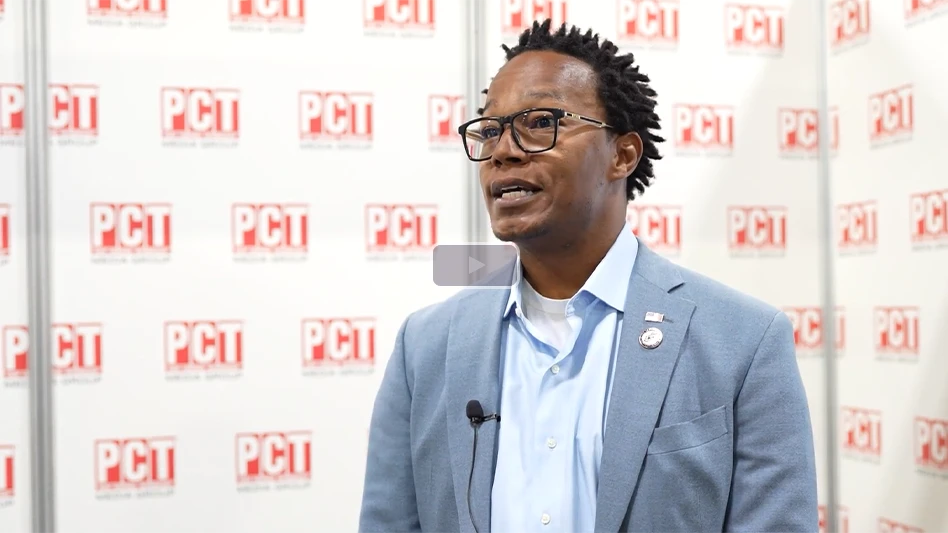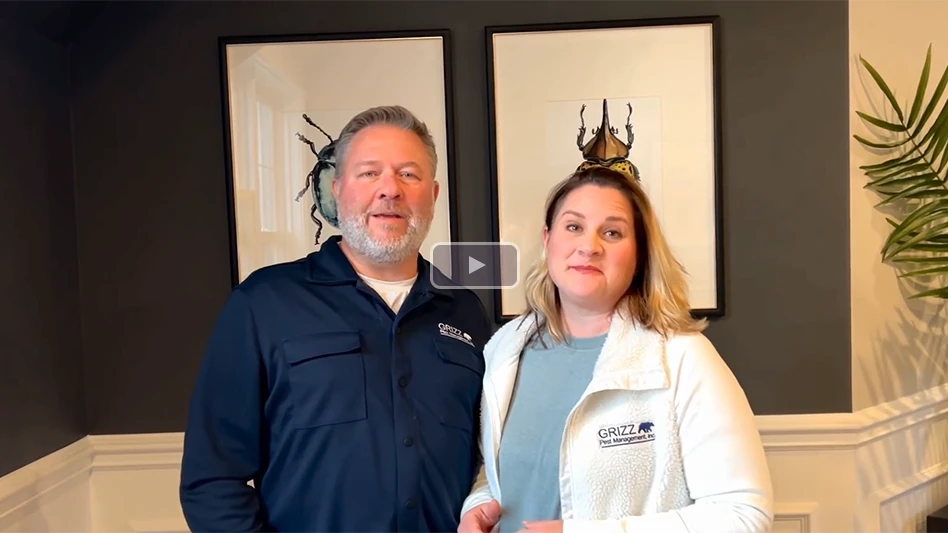Drum roll, please: Last month marked the one-year anniversary of America’s economic recovery, according to a May 24 report by the National Association for Business Economics (NABE).
The group of 46 experts said the economy hit bottom in June 2009. This trough marked the end of economic contraction and the beginning of expansion. Since then, we’ve been slowly — often painfully — waking from an 18-month-long financial nightmare, the longest since the 1930s. The recession that began in December 2007, they said, is over.
"Growth prospects are stronger, unemployment and inflation are lower, and worries relating to consumer retrenchment and domestic financial headwinds have diminished," said NABE President Lynn Reaser, chief economist at Point Loma Nazarene University. Europe’s financial mess and large federal deficits, however, remain wild cards to recovery going forward.
So, what can pest professionals expect in this post-recovery economy? How do we grow in this new business environment? What lessons have we learned that will make us stronger in recovery?
In this special report, PCT set out to find the answers.
A New Frugality Sets In... Being tight-fisted has become a consumer badge of honor. This behavior reshaped consumption patterns in ways that will persist even as the economy rebounds, reported the management consulting firm Booz & Company.
A Big Research poll even found 45 percent of respondents are happier living a simpler, more frugal life as a result of the recession.
Saving is now more important than spending for 65 percent of Booz & Company respondents, and more than half said the best price trumps the best brand.
Coupon redemptions grew 27 percent last year as Americans found ways to cut costs and get more for their money, reported The Nielsen Company. Households with $100,000-plus incomes drove this growth. Why? The report found "better educated and more affluent consumers are much better at looking for deals as they recognize the value of money."
Without a doubt, people have become more aware of their lifestyles and budgets, said Hulett Environmental Services Marketing Director Greg Rice in West Palm Beach, Fla.
Validating your service is more important than ever, especially for firms doing less-visible exterior perimeter treatments, he said.
Hulett now requires technicians to call customers the night before service, and for customer service representatives to follow up by phone. When the company re-launched its website with online bill pay and service history options, it had another reason to reach out.
"We were looking for ways to touch our customers" at times when they didn’t expect a service provider to do so, explained Rice.
Take Away: Consumer behavior has changed. Find ways to touch customers often and communicate value.
…Causing People to Nest. Being frugal means more consumers are staying home these days…to cook, download movies from the Internet, host family game nights, and even replace their vacations with "stay-cations."
Because people can’t sell their homes, "they are doing more with the house they already have," said Rice. "They’re spending money if they think they’re getting a return on that money."
Outdoor kitchens are a "big, big phenomenon" across the country. And if people are going to enjoy the outdoors, he said, they have to do something about the mosquitoes.
Controlling this pest has "been a big help for us in terms of extra revenue," said Rice.
The outdoor living trend is "only going to get bigger" when the economy rebounds, he said.
Family demographics are changing, too. In 2008, a record 16 percent of the U.S. population lived with at least two adult generations or a grandparent and at least one other generation, according the Pew Research Center. On the flip side, households of single people rose to more than 10 percent.
The oldest Baby Boomers turn 65 in 2011, reminded marketing firm Brain Sells. Not only will this group begin downsizing homes and moving to warmer climates, they’ll also have need for new types of recurring services.
Take Away: Consumers are spending more time at home by themselves or with extended family. Communicate how your services protect the nest and meet changing consumer needs.
Housing Woes Will Remain. After years of dismal housing activity, this spring was brighter — briefly. Existing home sales in May were lower than in April but more than 19 percent above May 2009 levels, reported the National Association of Realtors.
Sales of new single-family houses, however, fell more than 32 percent, and single-family housing starts dropped more than 17 percent in May, reported the U.S. Census Bureau.
Dean Baker, co-director of the Center for Economic and Policy Research and who called the housing bubble in 2002, doesn’t expect a recovery any time soon.
"I think we’re going to see a big fall-off in purchases for the rest of 2010 and even into 2011," Baker said in an interview with Yahoo Finance in May. He cited the expired homebuyer tax credits, the Federal Reserve’s exit from the mortgage market, the home inventory glut, and falling rental prices.
Nevada remains housing’s ground zero, said Kurt Trombetti, president of Enviro Safe Pest Control in Las Vegas. The state posted the nation’s highest foreclosure rate for the 40th straight month, with one in every 69 housing units receiving a foreclosure filing in April — more than five times the national average, according to Realty Trac.
"It hurts business because you’re losing customers," Trombetti said, but it also "made us start working harder."
Enviro Safe entered the commercial market, "got creative" with payment terms and retaining customers without lowering prices, and communicated what it delivered beyond pest control expertise. Technicians at the QualityPro firm are background- and drug-checked, are not allowed to smoke on the job, and have completed the Purdue pest control technology correspondence course. "We emphasize that to our customers," said Trombetti.
The housing collapse hit Northwest Exterminating in Tucson, but not as badly as it could have. Ten years ago the company moved into recurring pest, bee, termite and weed services, with termite work dropping from 70 percent to about 25 percent today, said Vice President Dan Miller. In hindsight, that was a "very good thing."
Take Away: Don’t wait for a housing recovery that may not happen. Diversify your business, protect margins, and tell customers what they get for their money beside the expected control of pests.
Green Holds Its Own. People committed to "going green" didn’t change their minds during the recession: Seventy-six percent said they’d still pay more for environmentally friendly products, reported an ORC Guideline survey.
Sara Kantarovich, technical director at Smithereen Pest Management Services in Niles, Ill., said commercial clients’ interest in green pest management increased so much Smithereen became GreenShield certified.
High-profile clients, including Chicago landmarks, "are all going LEED," an environmental designation of the U.S. Green Building Council.
LEED "goes hand-in-hand" with GreenShield-certified service and interest in LEED buildings "is not going to stop any time soon," Kantarovich said. Having a viable program with third-party accreditation "sets you apart" from competitors.
On the residential front, the recession didn’t cause a shift to conventional treatments, said All Natural Pest Solutions General Manager Paul Wesner in Medford, Ore.
But it did require him to get more creative customizing initial treatment programs to meet customers’ budget needs.
People still wanted green during the recession, but premium green pricing was a "non-starter for most shoppers," confirmed the State of Green Business 2010 report by Greener World Media.
If being green makes for good corporate citizenship, consider this: According to Trendwatching.com, companies that prosper moving forward will display greater transparency and honesty, have conversations versus one-way advertising, and champion collaboration instead of an us-versus-them mentality.
Take Away: Interest in green pest management is growing. Develop a viable program, get third-party accreditation, and tell customers what green means and that you offer it.
Better Back-Office Practices. Not surprisingly, account receivables took a hit during the recession. "People are slower to pay," often taking 45 to 60 days to pay for service, said Bug Busters USA President Court Parker in Atlanta.
Parker said the number of customers going to collection also increased. To prevent this, Bug Busters USA offers bonuses to employees who get customers to sign up for auto pay. Ninety percent of new customers pay by credit card, though getting long-term and commercial clients to switch is a bigger challenge, Parker said.
PCO Bookkeepers owner Dan Gordon in Newton, N.J., suggested billing credit cards monthly for quarterly service. Because people get used to a low recurring charge instead of a higher amount that appears at service time, billing is disassociated from the service, he explained. Another trend is debiting fees from customer bank accounts. Offering a discount or an extra month of service for paying a year in advance also eliminates late payments, Gordon said.
Cost-cutting at some firms resulted in high profit last year despite flat revenue. Northwest Exterminating had its "best profit in history in 2009" by cutting everything but necessities, said Miller.
Parker reduced overhead by outsourcing invoicing, payment processing and collections in recent years. This saved the company banking fees, postage and labor costs at branch and corporate offices.
PMPs expect to continue operating lean, but Gordon cautioned that companies don’t grow by cutting costs. The recession proved the strength of the recurring revenue business model. "The game changed a while back," recalled Gordon, but some professionals didn’t understand that, especially when the real estate market heated up. Most PMPs had already shifted models, but those still in it got "beat and beat good."
Take Away: Back-office operations can be improved. Don’t let money sit on the table, offer incentives for up-front payment, focus on recurring revenue, and learn the "business" side of the business.
Advertising Pays Off. We’ve all heard that when the economy sours you should advertise more. But, really? Isn’t this just a media industry ploy?
Hardly, according to Hulett Environmental Services. The company increased ad spending the last two years — even getting more impressions for the money due to the soft media market — and recently had its first double-digit monthly increase since 2006. "We’re so busy now with new lead activity we set a record," said Rice.
An advertising budget is a valuable resource, but "people often think it’s disposable" when times get tough, he said.
Before the recession, Enviro Safe’s Trombetti "never marketed." This year, he launched a new website, and Internet and direct mail campaigns.
But his "greatest return on investment" was getting involved with groups like the Institute of Real Estate Management, Community Associations Institute, and Building Owners and Managers Association. He picked up the contract for seven shopping centers — a total of 4 million square feet — from one contact, alone.
Trombetti is also active in a service company collective that invited 100 female property managers to a private screening of Sex in the City II, complete with martinis and appetizers. Costs were divided among 16 members, making it an affordable — and memorable — way to mix with decision makers, he said.
Northwest Exterminating encouraged employees to get involved in community business groups and hobby clubs. "Once you get known as the exterminator, it’s funny how everybody just calls you," said Miller. "It works very well."
Wesner of All Natural Pest Solutions scrutinized his ad strategy in 2008 and found his cost per lead "through the roof." He dropped mass-market phone directory advertising for "guerilla marketing" aimed at green consumers.
He advertised in green business directories, got involved in sustainability-focused membership groups, and worked at building relationships with consumers already inclined to use green service. "The closing ratio is so much higher" when communicating with like-minded clientele, he said. Wesner also hired people for door-to-door canvassing, "which was huge."
Take Away: Consistent marketing creates awareness and share. Know your audience, find ways to make meaningful connections, and commit to your budget.
Healthcare Confusion. New federal laws passed in March may or may not solve the health-care dilemma, but one certainty exists: Your business will be impacted.
Designed to give Americans access to decent, affordable healthcare, the laws take effect in stages through 2018.
Notable provisions include coverage for dependent adult children up to age 26, which goes into effect next year. In 2014, employers with 50 full-time-equivalent employees are required to provide health insurance or pay penalties.
"This is going to cost more" for employers, said Ashley Gillihan, an employee benefits lawyer at Alston & Bird in Atlanta. He hosted a health care webinar for National Pest Management Association members in June. "This is not a political statement, that’s just a fact."
Residex President Chris Donaghy in Roselle, N.J., got a taste for how much more. His provider tried to pass on a 30-percent increase due, he believed, to the new mandate. Donaghy negotiated a lower increase but insurance companies are "going to get their pound of flesh from us one way or another."
It’s going to be "a huge weight to bear" for employers who offer family insurance coverage, and some increased costs will be passed on to employees, he said. Residex pays $750,000 a year to cover 70 employees and their families. "That’s a substantial amount of money to the bottom line."
The laws could help small business recruit talent that traditionally veers to larger firms for health insurance, said Seawright & Associates President Jean Seawright in Winter Park, Fla. But coverage won’t help retain employees, because they’ll be able to get it elsewhere regardless of pre-existing conditions, she said.
Experts believe the laws could impact company growth, worker compensation claims, COBRA and a host of other issues.
It’s just too early to tell how, said NPMA Government Affairs Director Gene Harrington. Will state health insurance pools help spread out risk and reduce costs, or is the legislation a "bureaucratic mess that creates a lot of headaches" and ups cost? Either way, PMPs will have to adjust, he said.
Gillihan said PMPs must determine which rules apply to them as employers, which health care plans are subject to the new rules, and when all these rules apply.
Take Away: Healthcare reform is a mandate and you will be affected. Establish a relationship with a qualified benefits consultant or insurance broker. "Now’s the time to get a good one," advised Seawright.
More Legislative Jockeying. Cash-strapped states are putting the pinch on business.
In New Jersey, employers may be required to pay $400 more per employee in unemployment taxes starting July 1 because the state’s unemployment fund was found to be seriously deficient by the U.S. Department of Labor in March.
The state is "desperate for new revenue" to support the unemployed "so they’re going to hit the employers," said Residex’s Donaghy.
The U.S. Department of Labor said 32 states owed the federal government for unemployment benefits in May.
Lots of other "sneaky taxes" have slipped in, as well, said Donaghy. He’s now personally liable for a New York commuter tax — "I don’t even commute into New York," he notes — because he’s the owner of a business that does business in New York.
A notable federal change was the April 30 expiration of the homebuyer tax credit, which "really benefited a lot of our members, particularly in the inspection arena," said NPMA’s Harrington. The credit provided business a "nice little boost" and NPMA is watching closely for any fallout.
This being an election year, Harrington expects Democrats to push for a jobs bill that, among other things, could loosen up credit for small business, make it easier to get loans, and expand Small Business Association loan amounts.
And, "tremendous changes" at the U.S. Environmental Protection Agency will result in label tightening and loss of use patterns, said Harrington. "It’s becoming much more difficult to get products approved and re-evaluated."
Various issues — some closer to being voted on than others — "all potentially could affect the industry," stated a Crop Life America memo from May. These include modifications to the Clean Water Act, National Pollutant Discharge Elimination System permit requirements, Toxic Substances Control Act and Endocrine Disruptor Screening Program, and Pesticide Registration Improvement Act.
Discussions on pesticide spray drift, the Endangered Species Act, food safety, the Farm Bill, and climate change and energy are ongoing.
"Aside from additional costs to navigate around and comply with new regulations, lawsuits against the PMPs will increase if some of these bills pass," said Donaghy.
One Step Closer. Economic recovery will take time, but "green shoots" (to quote a phrase from Federal Reserve Chairman Ben Bernanke) are becoming apparent.
The Bureau of Economic Analysis said personal income increased 0.4 percent and disposable personal income rose 0.4 percent in May. And, the gross domestic product grew for the third straight quarter, rising 2.7 percent in the first three months of 2010.
Even Trombetti’s noticed people are starting to spend money. "That’s nice to say, coming from Las Vegas."
The author is a frequent contributor to PCT magazine. She can be contacted at anagro@
giemedia.com.

Explore the July 2010 Issue
Check out more from this issue and find your next story to read.
Latest from Pest Control Technology
- MGK Announces EPA Registration of Botanical Active Ingredient Veratrine
- Termite Control Sales Strategies
- NPMA Announces ELP Class of 2025
- Termite Control Tools and Equipment for PMPs
- Choe Reviews Drywood Termite Geographical Hotspots, Latest Research Findings
- Mosquito Squad Announces Rebranding to Mosquito Squad Plus
- Pest Control Equipment: If it’s Critical, Back it Up!
- In Memoriam: Marybeth Wonson





